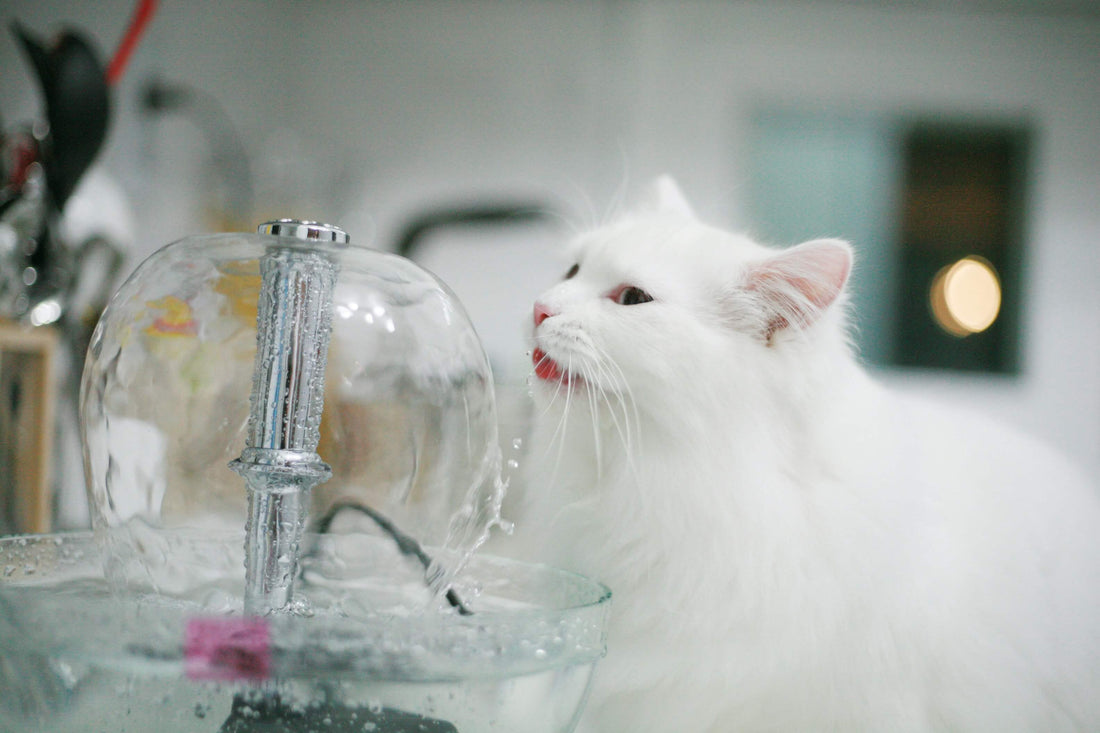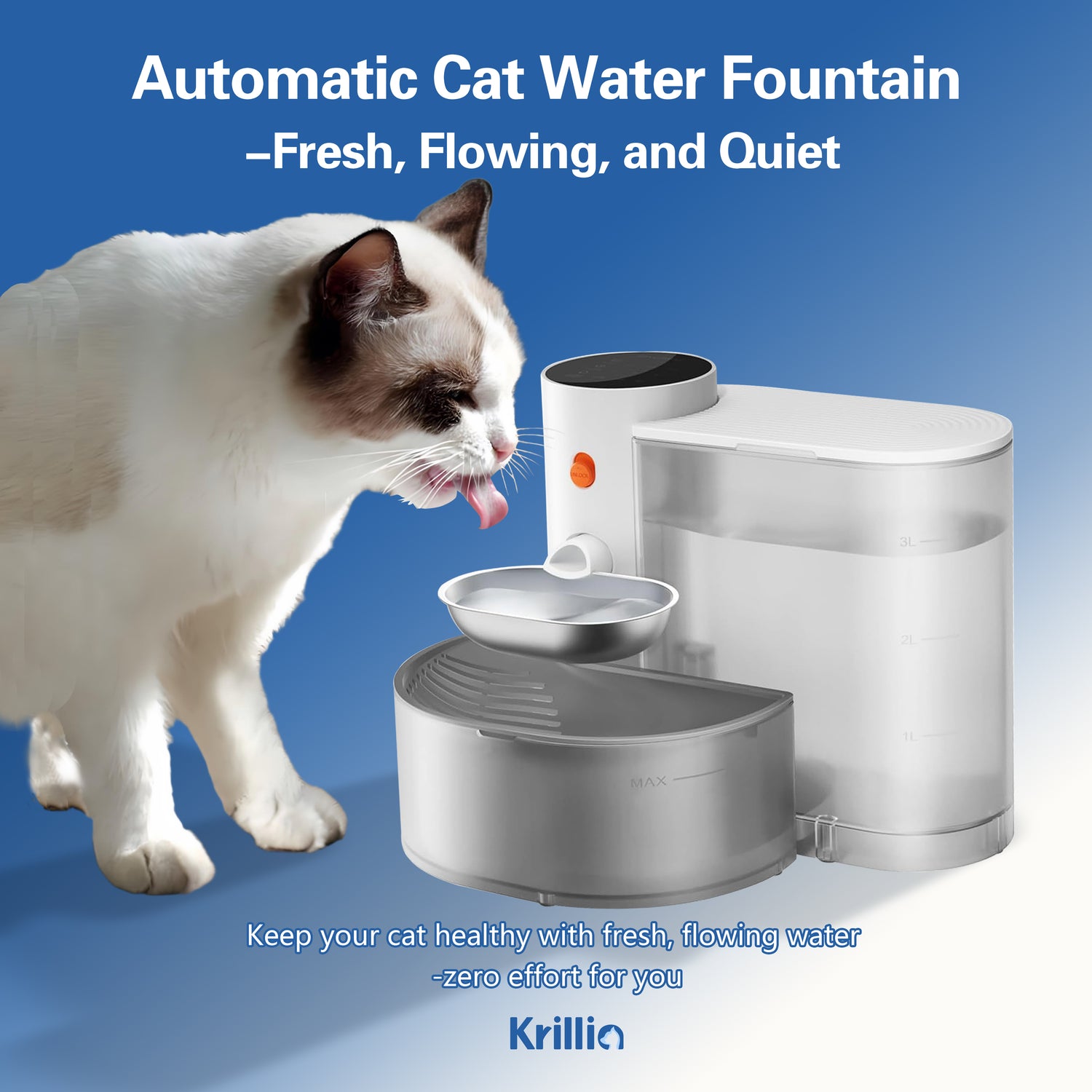
Why Cat Hydration Matters: A Vet-Inspired Guide for Modern Pet Parents
Share
Introduction
Cats are notorious for being picky drinkers. Unlike dogs, they evolved as desert animals and often don’t drink enough water on their own. This can put them at risk of urinary tract infections (UTIs), kidney problems, and chronic dehydration.
For modern pet parents, ensuring proper hydration isn’t just about preventing illness—it’s about helping cats live longer, healthier, and happier lives.
In this guide, we’ll explore why hydration matters, what the science says, and how small changes at home—including smarter tools—can make hydration effortless for both you and your feline friends.
1. The Science Behind Cat Hydration
Veterinary studies show that cats on dry food diets typically consume half the water intake compared to cats fed wet food. Low water intake can:
-
Increase the risk of urinary tract infections (UTIs)
-
Lead to crystal and stone formation
-
Put strain on the kidneys, accelerating chronic kidney disease (CKD)
💡 Pro Tip: Aim for 50–60 ml of water per kg of your cat’s body weight per day. A 4kg cat should ideally consume about 200ml daily.
2. Common Signs of Dehydration in Cats
Cats rarely show obvious signs of thirst. Watch out for these subtle indicators:
-
Dry gums or sticky saliva
-
Lethargy or decreased activity
-
Reduced skin elasticity (skin tent test)
-
Loss of appetite
If you notice persistent signs, consult a veterinarian immediately.
3. Practical Tips to Encourage More Drinking
Here are science-backed strategies to help your cat stay hydrated:
-
Multiple water stations: Place bowls in different rooms so your cat doesn’t need to travel far.
-
Fresh and clean water: Change water at least once or twice a day.
-
Right bowl choice: Many cats prefer wide, shallow bowls to avoid whisker stress.
-
Wet food inclusion: Adding wet food or water to dry kibble boosts intake.
4. Why Flowing Water Works Better
Cats are instinctively drawn to running water—it signals freshness and safety in nature. That’s why many cats try to drink from taps or fountains.
A cat water fountain:
-
Keeps water oxygenated and fresh
-
Filters out hair and debris
-
Encourages cats to drink more frequently
This is where Krillia’s Smart Pet Water Fountain makes hydration effortless. Designed with multi-layer filtration and a quiet flow, it helps ensure your cats always have access to clean, fresh water—without you constantly refilling bowls.
5. Long-Term Benefits of Proper Hydration
By helping your cat drink more water, you’re supporting:
-
A healthier urinary tract
-
Better kidney function over time
-
Improved energy levels and coat condition
-
A longer, more comfortable life
Hydration isn’t a small detail—it’s the foundation of feline health.
Conclusion
Caring for cats means respecting their unique biology. By understanding their hydration needs and providing the right environment, we can prevent health problems before they start.
With solutions like the Krillia Smart Pet Water Fountain, hydration becomes effortless for owners and irresistible for cats—aligning perfectly with our brand promise: Effortless Pet Care.

